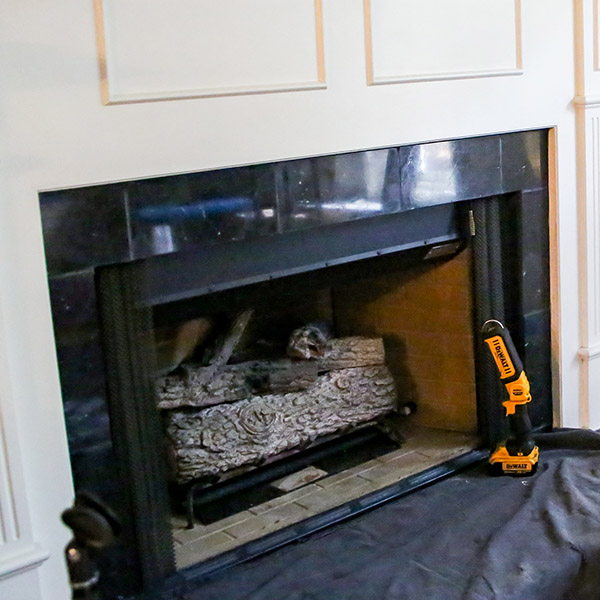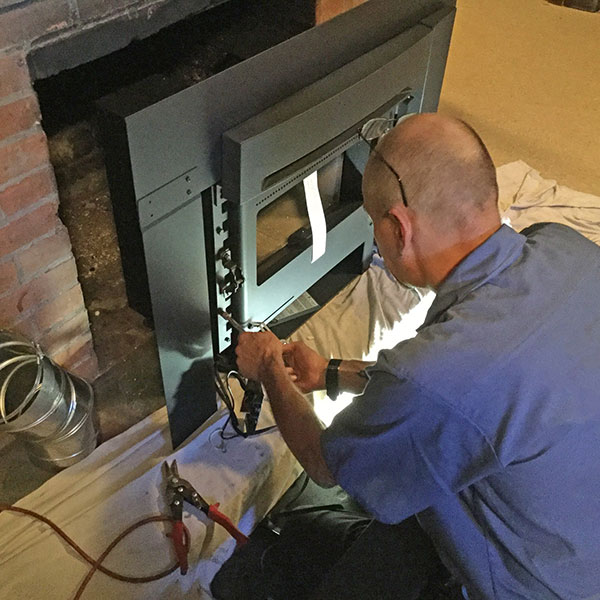Is it Better to Leave My Gas Fireplace’s Pilot On or Off During Summer?
Gas fireplaces offer all of the benefits of a wood-burning fireplace without the drawbacks. If you own a gas fireplace, you might wonder whether turning the pilot light off during summer is better than leaving it on. Here are the pros and cons of both.
 Pros of Turning the Pilot Light Off
Pros of Turning the Pilot Light Off
It Saves Energy
Leaving the pilot light on all summer consumes energy, and while it only uses a small amount of gas, the cost can add up over several months of not using the fireplace. Turning it off will save you money by slightly reducing your gas bills.
It Reduces Heat
Leaving the pilot light on produces heat, and like energy consumption, it’s only a tiny amount, but it could be enough to make your HVAC system work harder to maintain the desired temperature. When your HVAC works harder, it uses more energy, reducing efficiency, and could lead to your system wearing out more quickly.
It’s Safer
If you have children or pets, there’s always a concern, however slight, of accidental burns. Turning the pilot light off eliminates the risk and keeps your kids and pets safe.
Cons of Turning the Pilot Light Off
It’s More Difficult to Relight
Relighting a pilot light can be a chore if you’re unfamiliar with the process. Some homeowners find it inconvenient and not worth the trouble to go through the hassle every fall.
It Creates Moisture Issues
The pilot light helps keep the fireplace’s venting system dry by eliminating moisture that builds inside the system. Moisture buildup can cause mold growth, leading to musty odors and health issues.
It Increases the Chances of Clogs
If the pilot light is off, spiders and other small critters can crawl into the pilot light assembly, leading to clogs. These clogs can impair performance and make it more difficult to relight.
Pros of Keeping the Pilot Light On
It’s More Convenient
As mentioned, many gas fireplace owners find it difficult to relight the pilot light when cold weather rolls back around. Keeping it on eliminates this problem, allowing you to quickly start the fireplace when Mother Nature demands it.
It Provides Consistent Warmth
While its heat is minimal, it may be enough to take the chill out of cool summer evenings, especially as fall draws closer.
It Prevents Moisture Buildup
Besides blockages, the last thing you want in your venting system is moisture buildup, which provides a breeding ground for mold and mildew. Leaving the pilot light on prevents this from happening.
Cons of Keeping the Pilot Light On
It Can Raise Your Gas Bills
Keeping the pilot light on all summer can raise your gas bills. With rising energy costs, saving every penny you can is wise.
It Adds Heat
In peak summer, every bit of heat will make your home less comfortable and cause your air conditioner to work harder to keep the desired temperature. This is especially a problem in smaller homes and apartments.
 It Causes Safety Issues
It Causes Safety Issues
As mentioned, a pilot light that’s on constantly creates a risk of children or pets getting burned.
The bottom line is there’s no right answer as to whether keeping your pilot light on or turning it off is right; it’s a matter of personal preference. Ultimately, the effects of either choice are minimal, and it comes down to convenience.
Get in Touch With Us
Call us today if you have more questions about your gas fireplace or need a reliable, certified chimney and fireplace contractor. In Connecticut, call 203-457-8415. In New Jersey, call 973-363-2204.

 Pros of Turning the Pilot Light Off
Pros of Turning the Pilot Light Off It Causes Safety Issues
It Causes Safety Issues